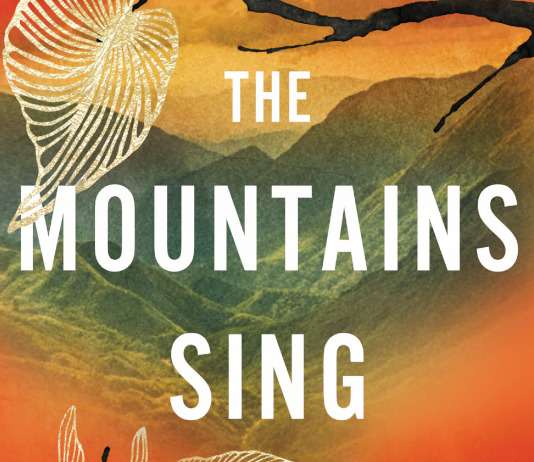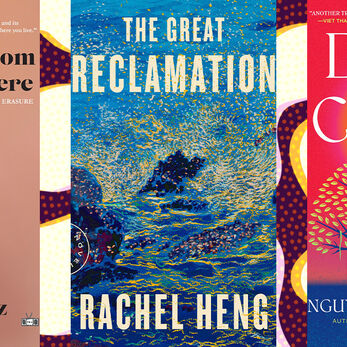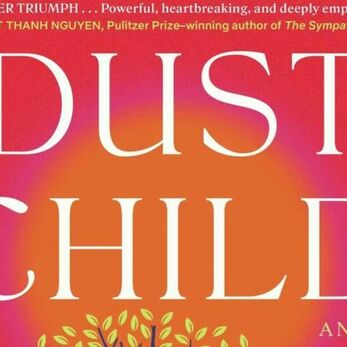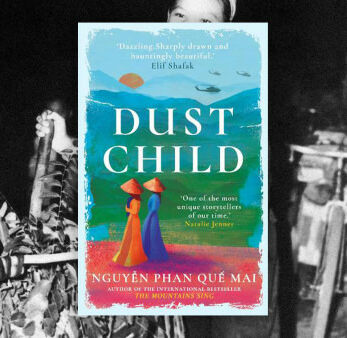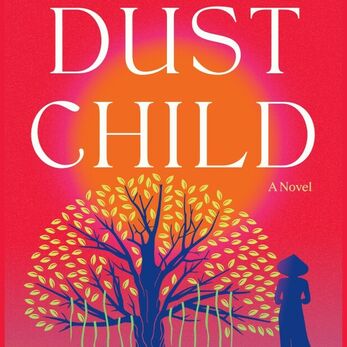Eric Nguyen reviews Nguyễn Phan Quế Mai's The Mountains Sing for diaCRITICS.
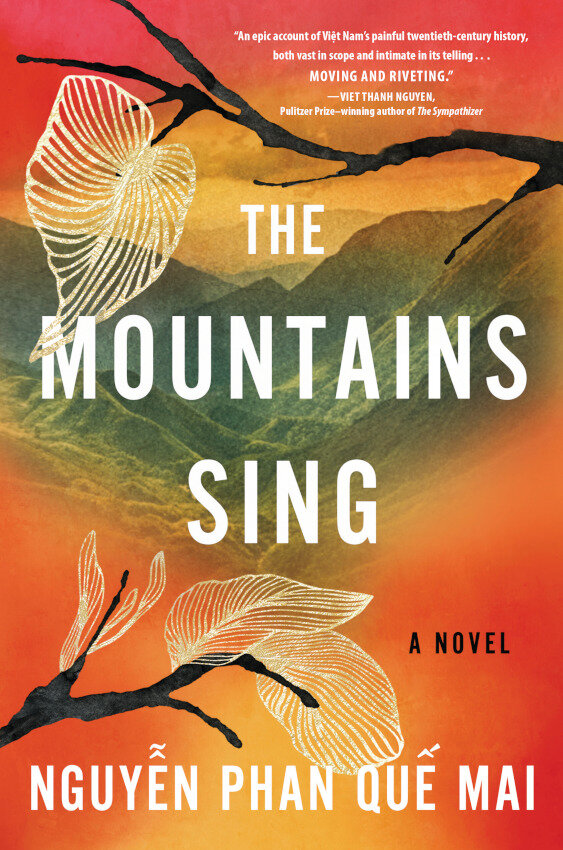
Vietnam’s turbulent 20th century is the subject of Vietnamese poet Nguyễn Phan Quế Mai’s masterful debut novel The Mountains Sing. Told through the voices of two women—Hương Trần and her grandmother Diệu Lan—the novel brings to light the experiences of four generations of an ordinary family cursed to have lived in the midst of great change.
The novel begins urgently with a scene of Hà Nội being bombed by Americans and a young Hương and her grandmother searching for shelter. There’s a “thundering noise” and “explosions ring from afar” as a voice blares a warning from loudspeakers: “Attention citizens! American bombers are approaching Hà Nội. One hundred kilometers away!” The two race frantically for safety and eventually find it, but the incident is one that reminds Hương that there’s a war going on—a war she doesn’t quite understand beyond the fact that it has torn her family apart. Her father, Hoàng, has “traveled deep into the jungles with his troops and hadn’t sent back any news for the past four years” while her mother, Ngọc, has volunteered as a doctor to go south to look for him. When her mother does finally return, Hương has to learn how to grapple with the devastating consequences of war.
Threaded with Hương’s coming of age during and after the war is the life story Diệu Lan tells her. Growing up as the daughter of prosperous farmers, Diệu Lan is visited by a fortune-teller who foresees a “very hard life. She’ll remain rich for a while,” says the fortune-teller, “but will lose everything and become a wandering beggar in a faraway city.” Though the family tries its best to ward off this bad luck (her mother takes her “to countless temples and pagodas to pray for blessings”), the arrival of the Japanese during World War II, “ruling us through the French, burdening us with yet another layer of taxes and duties,” Diệu Lan notes, kick starts the prophecy to fruition. After independence, as the young country tries to reunite with its southern counterpart, weed out American occupiers, and enact national policies, the Trần family is changed forever.
The lives in The Mountains Sing are filled with violent challenges and Nguyễn writes vividly with profound psychological insight. “Wars have the power to turn graceful and cultured people into monsters,” Diệu Lan observes and indeed the woeful, transformative power of war is laid bare on these pages.
There are “fountains of blood” as Diệu Lan’s father is beheaded by a Japanese soldier. Under Japanese occupation, villagers are made to uproot their rice crops to grow non-edible plants like jute and cotton, causing a famine. Leaving the house in search of food, Diệu Lan encounters “a rotting corpse [laying] face down on the dirt road” and “[a] little bit further on, the body of a mother embraced her baby in their death.” And when the Land Reform comes, a policy where “[l]andless farmers are encouraged to rise against rich landowners,” Diệu Lan is forced to flee with her five children, walking 300 kilometers.
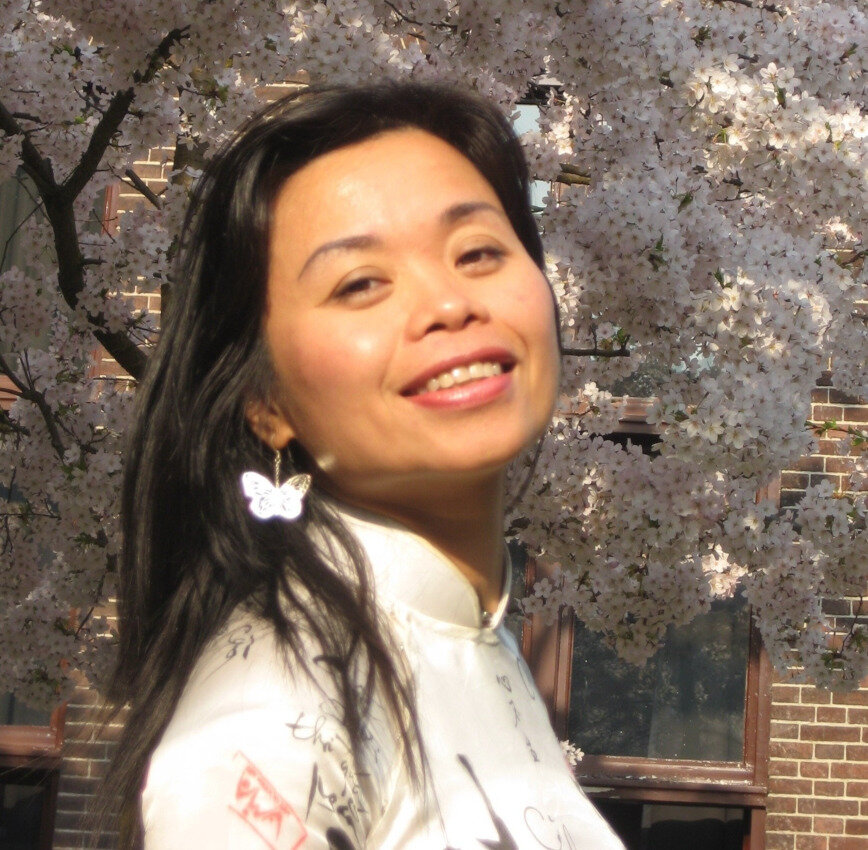
The psychological trauma is just as difficult. Nguyễn depicts emotional wounds and the resulting shifting familial dynamics with heartbreaking clarity. During her escape, Diệu Lan is forced to abandon her children one by one with the promise to return as soon as she can. It’s a decision that angers her daughter Ngọc, who holds a grudge well into adulthood: “You left us behind when running away from your goddamn village, remember?” she attacks Diệu Lan after coming home. Intergenerational misunderstandings and disappointment show up again later when Hương realizes how her mother has changed from a loving, optimistic woman, to an emotionally unstable, reticent war veteran. “I didn’t want to look at her, nor pity her. Where had my strong and determined mother gone?” she asks. Reading her mother’s diary, which reveals secrets of what happened to Ngọc and what she’s done in combat zones, Hương sees her mother as a stranger and feels betrayed. By having these mother-daughter relationships mirror each other, Nguyễn suggests that if war makes us monsters to each other, it turns us into strangers to the ones we love most.
Nguyễn writes of Vietnamese history with such understanding and humanity that one can easily argue for The Mountains Sing’s status as the great Vietnamese novel of our time. There is a sure love for Vietnam’s culture and its people in these pages. In telling her story, Diệu Lan peppers in Vietnamese proverbs and the text is a celebration of what Hương calls “the essence of our ancestors’ wisdom.” That her characters are also survivors of such horrid happenings is a testament to the country’s strength. At the same time, Nguyễn is critical of past policies, such as the Land Reform and propaganda in schools.
The irony, of course, is that this great Vietnamese novel is written in English. Vietnam has a track record suppressing dissidence and criticism. One can easily see this book being censored because the picture it gives readers is complex and rarely is anyone in it innocent—not the French or the Japanese or the Americans or even the Vietnamese. Similarly, the villains are never one-dimensional. Telling of his time on the Ho Chi Minh Trail, Huong’s uncle is surprised to come across American soldiers bathing in a river: “Some were white and had blond hair, while the others were so black, their skin looked like it’d been smoothed with charcoal. Two boys were just standing in the middle of the stream, splashing water at each other, laughing…It was such a peaceful sight that I just watched, entranced.”
Of course, none of this would surprise Nguyễn, a wise observer of human nature, not just our many moods and multitudes, but our vulnerabilities and strengths as well.
“In your schoolbooks,” Diệu Lan tells Hương, “you won’t find anything about the Land Reform nor about the internal fighting of the Việt Minh. A part of our country’s history has been erased, together with the lives of countless people. We’re forbidden to talk about events that relate to past mistakes or the wrongdoing of those in power.” The Mountains Sing feels like an important remedy to that: not only a powerful story but a document of a people and nation, critical but nonetheless written with love.
The Mountains Sing
by Nguyễn Phan Quế Mai
Algonquin, $26.95

